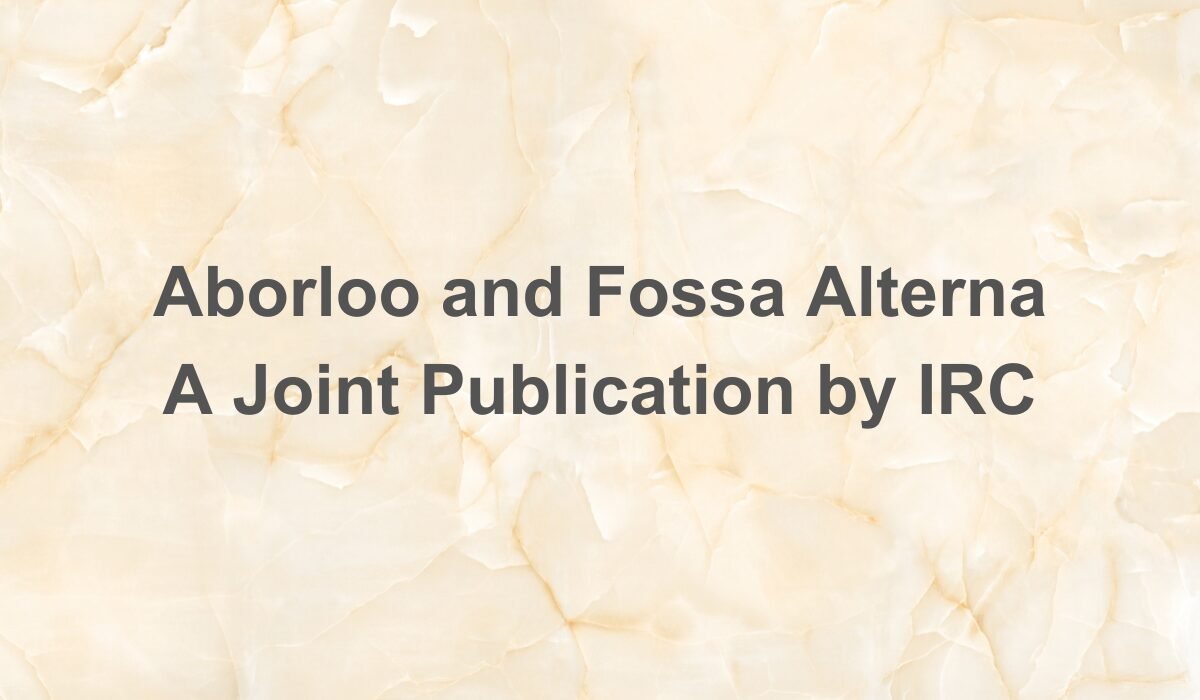In the arena of sustainable sanitation solutions, the collaboration among innovators and researchers regularly yields groundbreaking outcomes. One such superb collaboration is the joint e-book via the International Resource Centre (IRC) on “Aborloo and Fossa Alterna A Joint Publication by IRC.” This e-book represents a huge stride in advancing sustainable sanitation technology, combining insights and studies from pioneering structures: the Aborloo and Fossa Alterna A Joint Publication via IRC.
Understanding Aborloo and Fossa Alterna
Before delving into the specifics of the guide, it is crucial to understand the two sanitation generations mentioned:
- Aborloo: Developed in Ghana, the Aborloo is a dry composting lavatory designed to function without water. This device employs a composting system to break down human waste into precious compost, which can be used to enhance the soil. It is desirable for rural and peri-urban regions wherein water property is confined, and traditional sanitation infrastructure is too steeply-priced or impractical.
- Fossa Alterna: Originating from the idea of “Fossa” (Latin for pit), the Fossa Alterna is a composting latrine designed for clean safety and sustainability. Unlike conventional pit latrines, it’s miles geared up with a tool to periodically switch amongst two pits, allowing one to compost while the alternative is in use. This method complements sanitation by ensuring that waste is adequately processed and lowering fitness risks associated with pit latrine use.
The Significance of the Joint Publication
The IRC’s publication on “Aborloo and Fossa Alterna” completely evaluates these two progressive sanitation answers, emphasizing their roles in enhancing public fitness and environmental sustainability. The publication is big for several reasons:
- Comprehensive Analysis: The joint booklet offers an in-intensity evaluation of every structure’s layout, functionality, and impact. It highlights how the Aborloo and Fossa Alterna address key sanitation challenges, water shortage, waste control, and environmental infection.
- Case Studies and Data: Together with case research and empirical statistics, the manual gives real-international proof of the effectiveness of those structures. It illustrates how communities have benefited from enforcing that technology and enhancements in health consequences and environmental situations.
- Guidance for Implementation: The guide is valuable for policymakers, NGOs, and community leaders. It offers realistic guidance on implementing the Aborloo and Fossa Alterna systems. It includes recommendations on layout issues, maintenance practices, and network engagement strategies.
- Promoting Best Practices: By showcasing successful examples and instructions, the e-book promotes first-rate practices in sanitation. It encourages the adoption of modern solutions, which might be fee-effective and environmentally fine.
Impact and Future Directions
The IRC’s manual on Aborloo and Fossa Alterna contributes to the global discourse on sustainable sanitation and sets the stage for future studies and development. The insights gained from this joint effort can inform the development of recent technologies and the refinement of present ones.
As the arena grapples with the demanding situations of urbanization, weather change, and resource scarcity, the need for innovative sanitation solutions will best develop. Publications like this one play an important role in advancing the sector, supplying valuable records to stakeholders, and fostering collaboration between researchers, practitioners, and groups.
I give up; the Aborloo and Fossa Alterna A Joint Publication by IRC, represents a major improvement in the quest for sustainable sanitation. By highlighting the successes and lessons of those structures, the guide offers choices for a future where everybody has proper access to secure, powerful, and environmentally friendly sanitation solutions.

